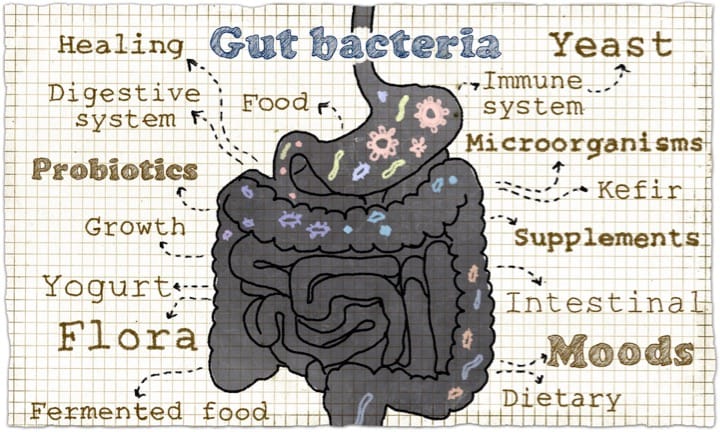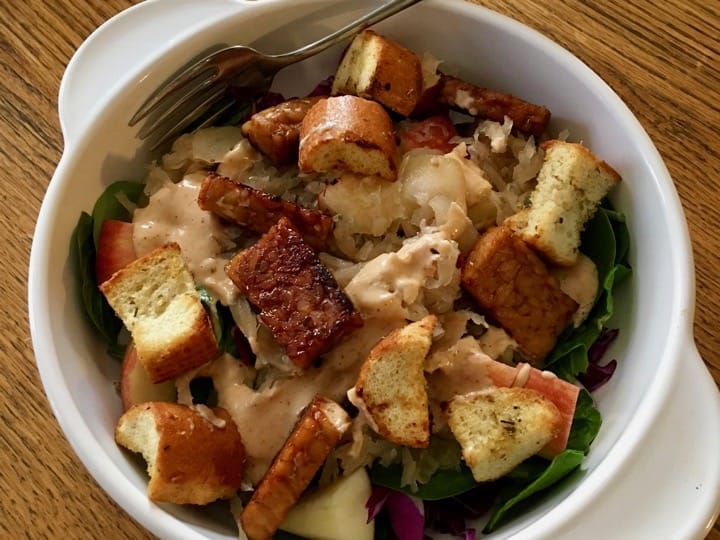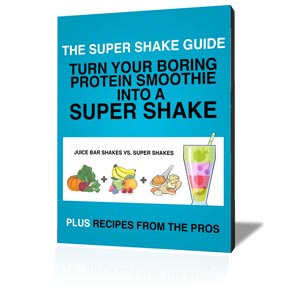If you have the chance to ask an expert you should always take it. I’ve been very lucky to talk with two experts recently about the great probiotic debate. The first was last fall. I happened to be sitting across the table from a Cornell professor and researcher who spent a good part of year studying nothing but the human microbiome. Here was a perfect chance to talk about prebiotics and probiotics.
This researcher happened to be my cousin, whom I had not seen since I was eight years old. Of course, we are connected on Facebook and exchange Christmas cards but we hadn’t had the chance to sit down and talk as grown up people until that family reunion. I asked my cousin about his work in between cajoling the kids to eat and fighting jet lag. I asked him with all that he had learned what had he changed in his diet. Did he take a probiotic supplement or eat a new and improved diet?
His answer was surprisingly simply. He said to make sure to eat your protein (that actually stems back to his other work on bone health), eat plenty of vegetables and try to keep sugar intake low. He doesn’t take a probiotic because his research showed that what we take in a pill often doesn’t sustain itself in the gut. He said we’re better off getting what we need from real food.
How do you get prebiotics and probiotics in your diet to support a healthy gut balance?
Let’s define those two terms first. Here’s the definition from Mayo Clinic:
Prebiotics are specialized plant fibers. They act like fertilizers that stimulate the growth of healthy bacteria in the gut. They are nondigestible carbohydrates that act as food for probiotics.
Probiotics are different in that they contain live organisms, usually specific strains of bacteria that directly add to the population of healthy microbes in your gut.
I think it’s also important to stop here and discuss why gut health matters. Having a healthy microbiome isn’t just about digestion. Research has found that the health of your gut affects everything from immune system function to fat storage to brain function. Did you know that 90% of the body’s serotonin is made in the digestive track? Or that your levels of HDL (good cholesterol) may be linked to what is going on in your gut? Your holistic approach to health must include a plan to keep the good bacteria flourishing.
How do you keep those microbes plentiful? Eating probiotic foods is the best way to do it, according to the experts (including my university professor and researcher cousin). Yogurt was the go-to food for years to get good bacteria into your system. But what if you can’t do dairy?
You can find probiotic cultures in at least two non-dairy yogurt products. Both Silk and Daiya make non-dairy yogurts with probiotic strains. Just be sure to get the plain options to avoid the added sugar. Feel free to liven up the plain yogurt with berries, bananas, nuts, seeds, nut butter or protein powder.
You can also get probiotic benefit from fermented foods. Ever tried sauerkraut on a salad? The Tempeh Reubenesque salad from Salad Samurai is so delicious when made with Red Top Oven Bavarian Sauerkraut. Here’s your reason to try kimchi (Mama Jean’s Natural Market has a great selection) or have some miso soup with your sushi this week.
Prebiotics and probiotics have to work together. To keep your microbes happy and healthy you also need to make sure that you feed them! Probiotics “eat” fructo-oligosaccharides and galacto-oligosaccharides. Don’t worry, you don’t need to look for another thing on food labels. These resistant starches are easy to find and may already be among your favorite foods. Prebiotic foods include bananas, apples, onions, garlic, leeks and asparagus. Yes, an apple a day may really help keep the doctor away.
My second encounter with an expert happened quite by accident. Through my 12 Days of Fitmas challenge and a mutual friend, I have recently become acquainted with Samantha Goodall. Goodall is a family nurse practitioner at Command Family Medicine. During our recent lunch meeting she shared with me that her doctorate work is all about probiotics and gut health.
When to take a probiotic supplement.
Her advice was to make sure when your gut health balance is disrupted, for example after a round of antibiotics, to take a probiotic supplement to help rebuild the microbiome. However not just any probiotic will do. Trying to repopulate your gut with a lot of yogurt or a supplement that contains just one strain of bacteria, the well-known lactobacillus acidophilus, isn’t enough.
Instead you need to pick a supplement with at least four strains of bacteria that include the Bifidobacterium and streptococcus varieties. You’ll also want to pick one from the refrigerated case to help ensure the cultures are still alive. To her patients she recommends the Garden of Life Raw Probiotics Ultimate Care, which you can purchase locally at Mama Jean’s Natural Market.
Your body is a complex system but don’t ever let that make you feel like you can’t impact your health! The steps to a healthier body are often easier than you think. Probiotic supplements may have a targeted and temporary use but the more adaptable approach is to make sure you get a balance of prebiotics and probiotics in your daily diet. If you need some more help with this real food approach please sign up for my email list to get your free download of the Kitchen Rescue Pak.




